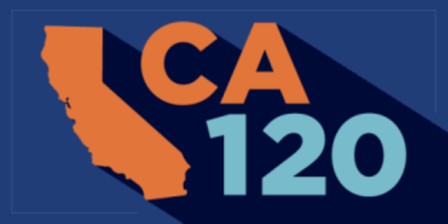Analysis
CA120: The hard truths about data
 Investigators probe the London premises of Cambridge Analytica last week, after a search warrant was issued by a High Court judge. (Photo: Yui Mok/Press Association, via AP)
Investigators probe the London premises of Cambridge Analytica last week, after a search warrant was issued by a High Court judge. (Photo: Yui Mok/Press Association, via AP)It hasn’t been long since we learned of a presidential campaign that used personal information gleaned from Facebook apps to enhance voter files, and target voters and their friends with political messaging.
This campaign was so sophisticated that they could identify people who would be swayed by particular messages, were more persuaded by messages about immigration, education, or health care, were likely or unlikely to vote, or even were likely to volunteer or donate money.
In the subsequent years, I grew sick of hearing candidates from school boards to legislative races say, “We want to do what Obama did!”
Big databases were used to link this Facebook data to publicly available voter registration files and other public and private databases.
These cutting-edge data scientists built profiles with myriad factors, such as whether they were a homeowner and how much their house cost, or if they live in an area with lots of college graduates or expensive homes, or if they buy diapers or if they recently bought a new car.
And there’s more: Their friends were susceptible to this kind of campaign profiling, too.
With data obtained from Facebook, the campaign knew about each voter’s friends and could build profiles for them – targeting someone’s friends for a message about voting for their candidate, spreading an article or, if those friends couldn’t be matched to a voter file, pushing them to register.
When this underbelly of the campaign data programs was made public, was there an outcry in the media? Was this seen as a gross invasion of our privacy? Were there calls to #DeleteFacebook?
Not really. This was the Barack Obama campaign in 2012.
These methods broke new ground in political targeting and were largely celebrated. These campaign methods sold books, created reputations and launched careers of almost everyone involved in the effort.
In the subsequent years, I grew sick of hearing candidates from school boards to legislative races say, “We want to do what Obama did!”
The public and the media are largely conflating the legal and illegal portions of these effort
Now, for many reasons, we are back at this issue, but the reaction has changed. These methods now have been used and abused — even to the point of apparent illegality — by a little-known firm named Cambridge Analytica in an effort to elect President Trump. And the outrage is palpable.
I don’t expect any candidates to exclaim, “We want to do what Cambridge Analytica did!”
But although the outlines of the two campaigns were similar, there are some important distinctions.
Obama’s team used an app that was engaging people who clearly knew they were signing up for something political, while the Cambridge Analytica data was surreptitiously gathered by an app that was disguised as a personality test.
Additionally, the kind of data gathering done in 2012 was actually dialed back by Facebook in 2014. No longer could you obtain this kind of information about friends, even if someone agreed to share that with an app.
Programmers were asked to delete any data from old Facebook apps. And, in the case of the data being used by Cambridge Analytica, the developers apparently lied when they were asked if the data had been deleted. To make matters worse, they not only lied about it, they sold it to a third party.
At some level, anyone who took that Facebook test, authorizing someone who they didn’t know to have all their Facebook data, gets what they deserve.
These are real issues — including the lying about data being deleted, the misuse of the data outside of the licensed agreement with Facebook, the unwillingness to change to meet the new Facebook terms post-2014, and the unauthorized selling of that data to a third party.
But the public and the media are largely conflating the legal and illegal portions of these efforts.
Under the cloud of Cambridge Analytica, the country is expressing outrage at the use of personal information gathered from social media sites, merged to public voter databases, and used to target them based on what data scientists think about your likelihood to be pro-choice or respond to anti-immigration issues.
Yet, the use of the data in that way is totally legal, commonplace and ongoing.
At some level, anyone who took that Facebook test, authorizing someone who they didn’t know to have all their Facebook data, gets what they deserve.
It seems disingenuous for someone to authorize a bunch of apps and games on the internet to have access to such information, and then freak out when it is actually used for a political or commercial purpose.
And the media and lawmakers are now acting outraged, even though the business model of trading online tools and programs for user information seems to be the most prevalent means of monetizing the internet right now, and everyone who is paying attention knows that.
This, along with the building of voter profiles using social media, commercial datasets and other means, might have some “creepy” factor, or feel a little Big Brother.
It’s like Inspector Reynaud in Casablanca who shuts down the illegal casino, telling Humphrey Bogart, “I’m shocked, shocked to find that gambling is going on in here!” — as he collects his winnings.
If you’re logging into a site that is giving you access to functionality that cost them millions of dollars to develop and run, and you’re not paying for it, then you’re not the consumer, you are the product. That company is profitable only based on the information they can get about you and sell to someone else.
Additionally, Facebook isn’t actually a primary source of information being used today. There are much more prevalent commercial databases built from your purchases, membership in discount programs, airline miles, what you buy online, and what you buy for recreation.
These are used by everyone from a company looking to locate in a neighborhood, firms making economic forecasts, businesses that are sending you catalogs, companies paying for digital ads that seem to follow you on every site you visit, and, yes, campaigns that are trying to model voter behavior based what kind of purchases you have made lately.
There are also more programs utilizing the information that we all have on each other.
After the Cambridge Analytica uproar subsides, the practices that they employed, at least the legal ones, will persist as long as these methods continue to work
In one example, my company, Political Data, now allows volunteers to sign up with a campaign to have their entire address book from their phone or computer matched to the campaign’s voter file. We don’t retain the volunteer’s personal data, but we do have an automated system to send them a list of voters they can call, text or email, who are the matches between their personal data and the campaign’s voter database.
This, along with the building of voter profiles using social media, commercial datasets and other means, might have some “creepy” factor, or feel a little Big Brother. But these are the practices that corporations and campaigns are using on a daily basis.
Cambridge Analytica staffers could end up facing major lawsuits and even criminal prosecutions, but these would be about the violation of agreements with Facebook, lying about deleting data, improperly handling personal information about voters, and foreign involvement in campaigns.
After the Cambridge Analytica uproar subsides, the practices that they employed, at least the legal ones, will persist as long as these methods continue to work.
They will work as long as we are willing to feed our information into social media platforms, as long as we sign-up with our personal information for discounts and memberships at the local supermarket or drug store, as long as we shop online with companies that share our data, as long as we allow cookies to be stored on our computers, as long as our IP addresses are publicly available, and as long as companies and campaigns can do better targeting of us through those means.
And this is just a partial list.
—
Ed’s Note: Paul Mitchell, a regular contributor to Capitol Weekly, is the creator of the CA120 column, vice president of Political Data and owner of Redistricting Partners, a political strategy firm.
Want to see more stories like this? Sign up for The Roundup, the free daily newsletter about California politics from the editors of Capitol Weekly. Stay up to date on the news you need to know.
Sign up below, then look for a confirmation email in your inbox.

Leave a Reply